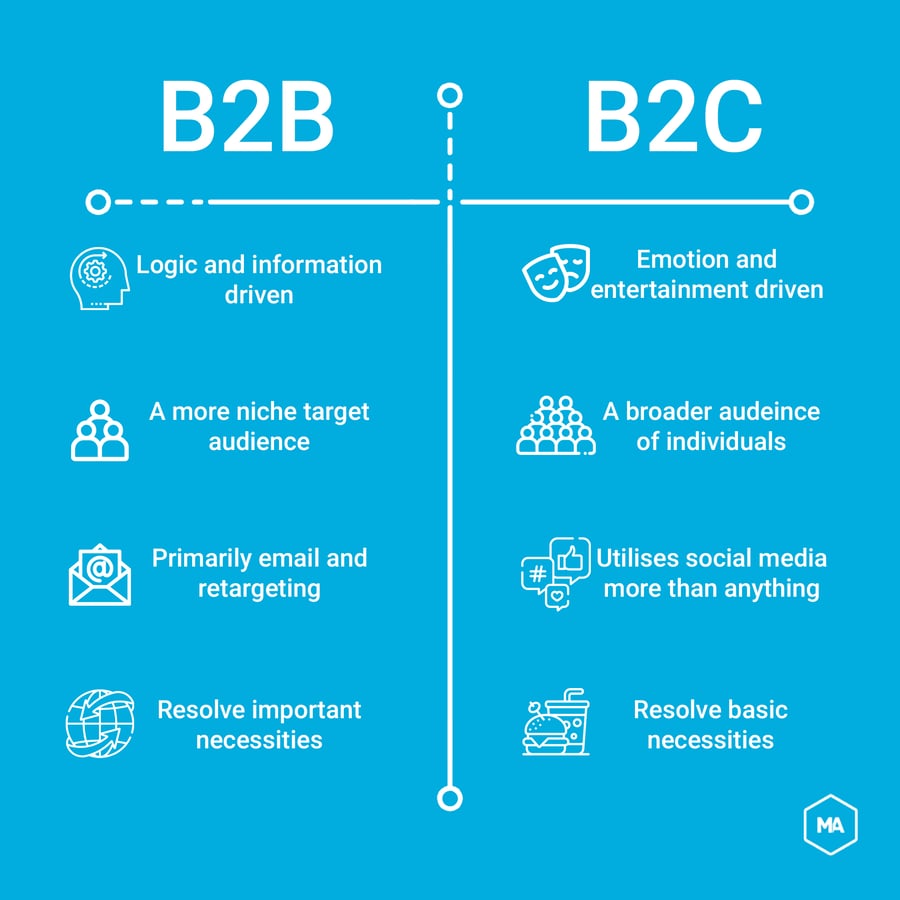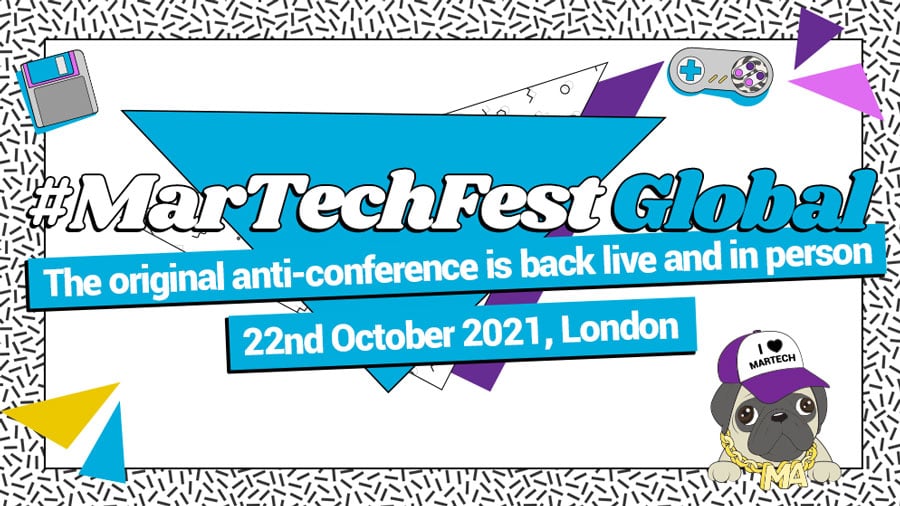Time is slowly, but measurably, blurring the lines between B2B and B2C marketing.
On the face of it, B2C marketing has always seemed like the more fun cousin of B2B marketing, which allowed marketers to actually use their imaginations to talk to people who may want to buy some products or services.
On the other hand, B2B was all serious and shirt and ties and big words and a general malaise for fun. These days though, things are changing and the differences are becoming far more nuanced than ever before.
Nonetheless, they are still very much different parts of a business, or even the marketing sphere, and thus the differences should be known.
So...
What is the difference between B2B and B2C content marketing?
More now than ever, marketers are increasingly aware that while they are aiming at a B (business), the B is run by various Cs (consumers) and they're the ones who see your messages.
Doug Kessler, creative director and co-founder of Velocity, will be speaking at our upcoming #MarTechFest In-Person Anti-Conference (which you can get tickets to right here), and very recently hosted a Twitter conversation with Viral Content Bee about this very topic...
Q3 How is B2B content marketing different from B2C content marketing? #vcbuzz
— Viral Content Bee (@vcbuzz) September 7, 2021
The conversation was incredibly informative and features a whole array of answers that shone many many many lights onto the world of B2B and B2C marketing.
More people are involved in both ends for B2B
B2B purchases can be higher value, and often business critical, so more people are involved in purchase decisions.
The same can be true for the content creation process. Key content can take time to refine, and will sometimes require sign off and approval from a range of stakeholders.

There are often more voices with ideas and demands, and more stages of review for the "finished" product to go through.
While B2C marketing is aimed at one or a few people at most, B2B marketing is going to have to convince a team of people that your content/product/service is the best option, and can address a whole variety of pain points.
Less emotional decision making
People like to buy things on a whim. They don't like that they do that, but it's one of life's facts that we've learned to live with.
Meanwhile, businesses mull over decisions and processes that will cost them a not insignificant amount of money. The buying process can be much longer for B2B, and the motivations for purchase are often less emotional.
With B2C, you can appeal to someone's personal desires and emotional whims, whereas with B2B, things need to be justified in terms of business benefits and backed up with proof of worth and efficiency.
A3 I do like stealing some tricks from B2C marketers. They get the power of emotion so much more than most B2B brands. #vcbuzz
— Doug Kessler (@dougkessler) September 7, 2021
Longer lead times
The decision making process can be longer, so B2B content marketing also relies a lot on relationships and building them, providing helpful content and giving potential buyers time to think.
In this sense, it differs from most B2C purchase decisions. There are exceptions of course - if people are looking to take out a mortgage or buy a new car, then they're going to take their time to make sure they've done the right research and that they're getting the right deal.
This means fewer impulse purchases in B2B, so your content needs to persuade by providing the key information that customers need to make an informed decision; content which addresses key concerns and pain points.
Longer consideration times can require different types of content for each stage of the funnel, as Doug Kessler points out:
A3 Long buying cycles means content needs to do different jobs at different stages. Top-funnel content may not even mention your product. Bottom-funnel may be a deep-dive product demo. #vcbuzz
— Doug Kessler (@dougkessler) September 7, 2021
Perhaps they're not so different
Many of the responses picked out the similarities between B2B and B2C content marketing.
#VCBuzz
— Andy Beard (@AndyBeard) September 7, 2021
This is really nuanced
I have never written "Business Formal" or "Business English"
I just write naturally informative with lots of references "naturally semantic"
But for SEO content is now becoming more information-dense with a high emphasis on semantic SEO
A3
There are also potential lessons for B2C marketers from B2V content. For example, as @growmap points out, B2B marketers often use video very effectively to show how complex platforms work, or to help people learn to use them. This is something which the world of B2C could learn from.
They're all humans!
Whether it's B2C or B2B content, buying decisions are made by humans and whichever way you look at it, you are educating them on your product or service, and content is there to raise awareness of, and sell your product.
Remember to sign up for our #MarTechfest In-Person Anti-Conference, where Doug Kessler and many more martech stars will be imparting their invaluable knowledge to you on the 22nd of October 2021.
It's going to be a lot of fun!

